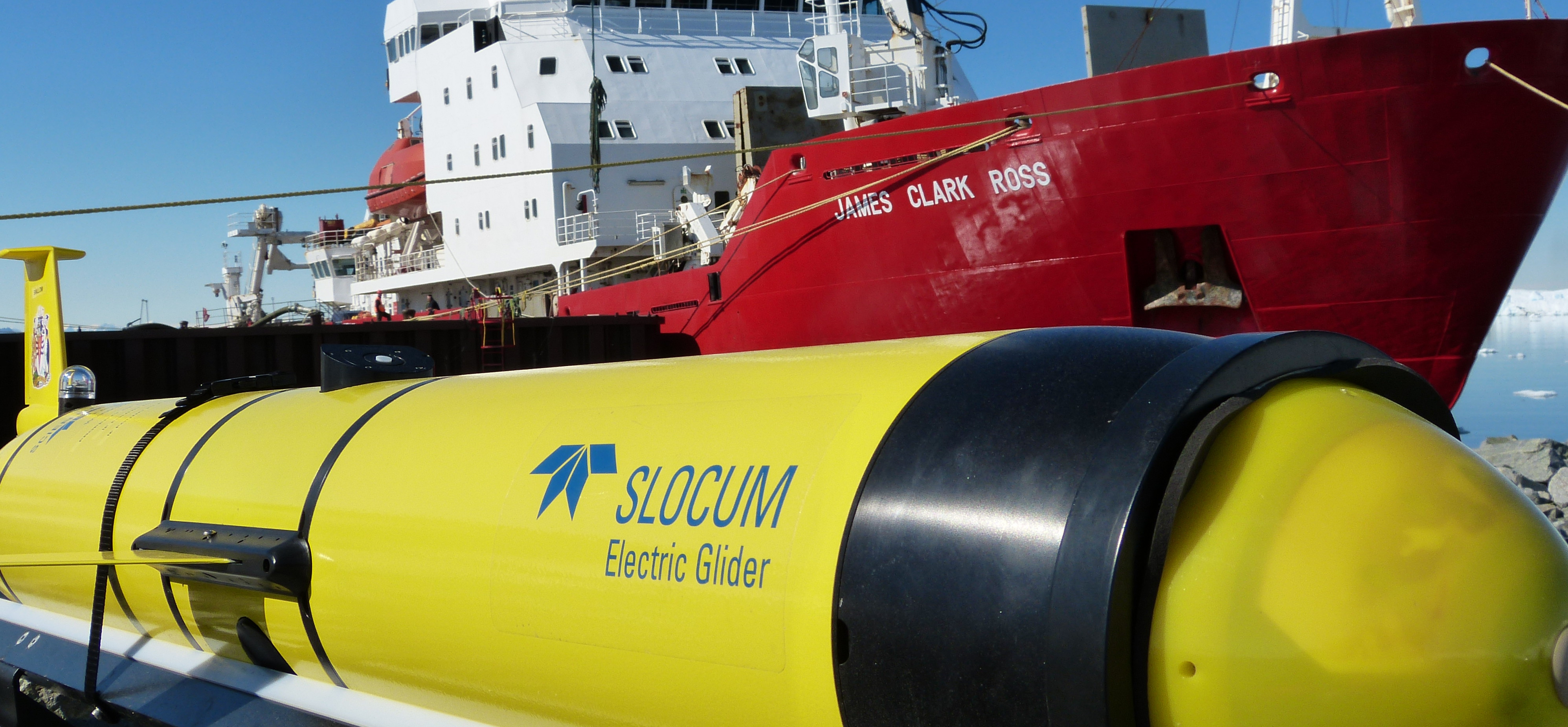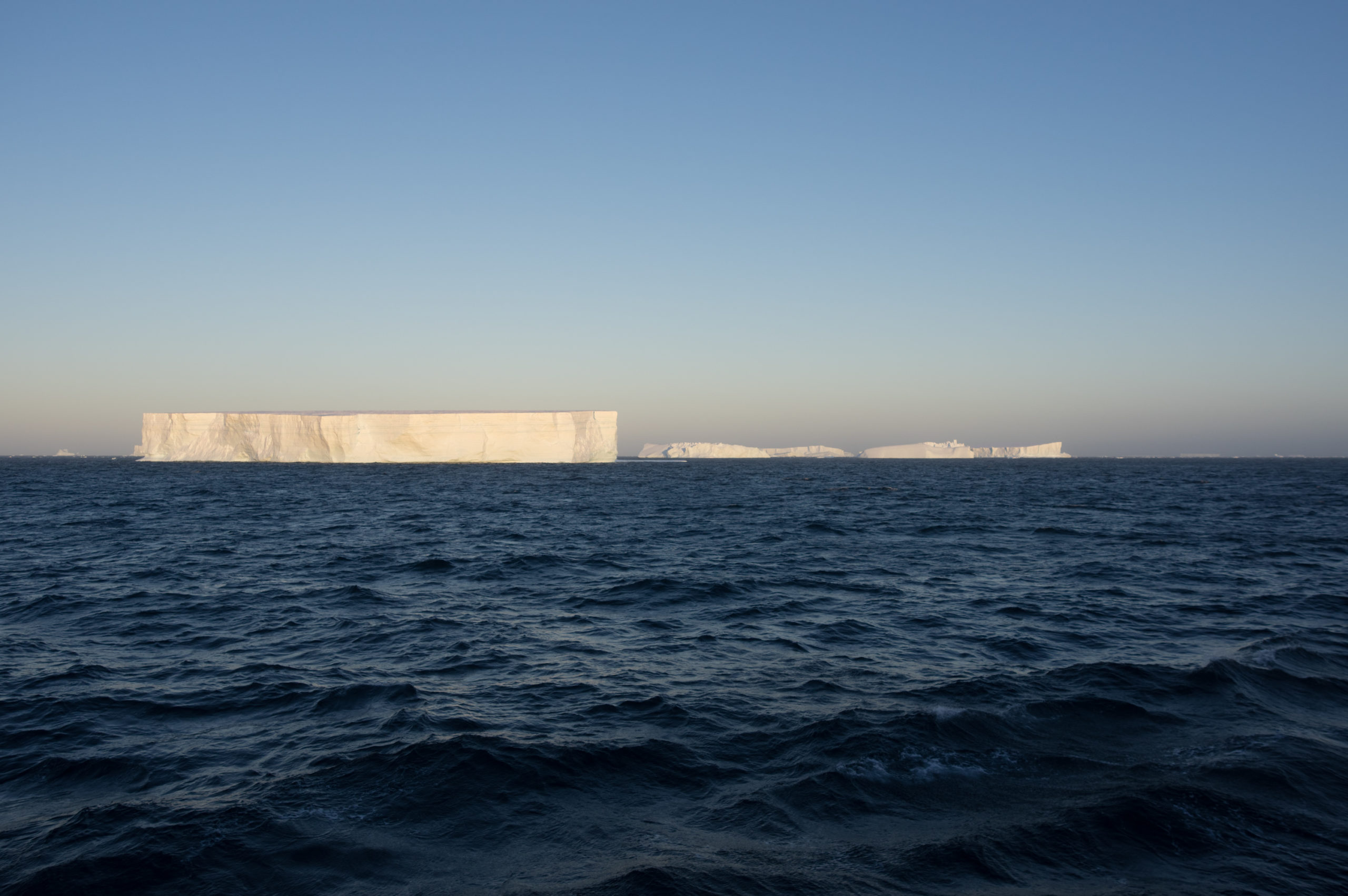The changing Southern Ocean: Heat and carbon
A series of studies on the Southern Ocean, which encircles Antarctica, reveal how it is changing. A special issue of the Journal Proceedings of the Royal Society, led by the British Antarctic Survey (BAS) researchers, is published this week (8th May). It highlights the cutting-edge research about the Southern Ocean and how it will respond in the future.
The Southern Ocean, the world’s largest heat and carbon sink, is changing. Almost three quarters of human induced warming and one fifth of manmade carbon is captured by the Southern Ocean, yet many of the processes, their strengths, and even locations are poorly understood.
The Southern Ocean’s roaring winds, mountainous seas, and treacherous ice all combine to make it a demanding place to study. Even with these challenges, researchers have made great strides forwards in our understanding. BAS plays an important part in this by leading national programmes like the UK Ocean Regulation of Climate by Heat and Carbon Sequestration and Transports (ORCHESTRA) and work packages within larger international efforts such as the EU funded Southern Ocean Carbon and Heat Impact on Climate (SO-CHIC) project.
Lead editor of the special issue Dr Andrew Meijers, a physical oceanographer at BAS:
“The Southern Ocean is the main connection point on Earth between the atmosphere and the deep ocean. The oceans have absorbed over 90% of manmade heat and almost a third of the carbon since the start of the industrial revolution, acting as a massive brake on more rapid surface and atmospheric change. Much of this absorption is via the Southern Ocean, where the unique conditions means that ancient deep waters are brought to the surface and modified by contact with the atmosphere, before being dragged down to the deep ocean interior. Understanding how this may change in response to climate change is a key question for humanity”.
In May 2022 members of the Southern Ocean research community gathered at the Royal Society in London. This brought together a global community of researchers from the fields of physical, biogeochemical, and ecosystem oceanography discussing the present state of our Southern Ocean knowledge and identifying key gaps. Following the meeting, the special Southern Ocean issue was brought together with contributions from scientists across the meeting.
Dr Andrew Meijers continues:
“This meeting and special issue highlight the massive advances in observational coverage and understanding that newly developed autonomous floats and ocean gliders have brought to the field. Crucially, it also shows that much more remains to be done if we are to understand this ocean at the end of the Earth and its impact on our climate”.
BAS researchers contributed greatly to both the meeting and the following special issue, leading two papers. The first provides a summary of the BAS-led ORCHESTRA programme, a multi-million pound project using a combination of observations and simulations to radically improve our ability to measure, understand and predict the circulation of the Southern Ocean and its role in the global climate.

The programme was at the forefront of observations, coordinating twelve scientific cruises mainly in the Weddell and Scotia Seas. The voyages extended several long running historical time series with ship-based measurements and mooring arrays, as well providing a platform for new studies along ocean fronts and undersea mountains. It has been at the forefront of innovative observations using new autonomous instruments to capture air-sea CO2 exchanges, expanding the direct measurements in the Southern Ocean by a factor of five.
ORCHESTRA brought together ship, aircraft, and surface and underwater vehicles for the first time in the Southern Ocean, providing extraordinary new insights into the processes governing air-sea fluxes and how they are changing. This led to the first observations in the Southern Ocean of the impact of surfactants, basically a sheen of organic scum produced by plankton and bacteria, on reducing the oceans’ ability to exchange carbon with the atmosphere. Away from the surface, researchers uncovered changes to the densest waters around Antarctica, finding that these waters are warming and shrinking in response to changes to winds and sea ice.
Alongside these observations, ORCHESTRA enabled a big step forward in computational modelling with several different projects. This has enabled much greater accuracy in representing the complex mixtures of water on the Antarctic shelf and how these flow into the deeper ocean. The modelling efforts also helped capture how expected changes to our global climate will affect the oceans’ ability to take up heat and which regions around the Antarctic are most sensitive to these changes.
Stemming directly from the enhanced measurement capability that ORCHESTRA provided, BAS researchers led a second paper within the special issue. They examined how the waters around the Northern Weddell Sea changed with fluctuations in sea ice including the impacts of the massive A68a iceberg. The balance between fresh and salty water at the surface of our oceans plays a key role in our global climate, setting the density and circulation at the surface and changing the biological productivity. Consequently, changes to this delicate balance impacts the amount of heat and carbon that can be drawn into the ocean.

Led by Professor Michael Meredith, a BAS physical oceanographer, the team revealed the impacts of retreating sea ice and melting icebergs on the surface freshwater balance. In 2016 Antarctic Sea Ice experienced a record decline, unprecedented in the satellite era. This decline led to a strong pulse in freshwater caused by the increasing ice melt rates. This pulse was felt across the Northern Weddell Sea as the meltwater flowed through it.
In contrast to this widespread freshening, the team found a much more local but larger impact from the giant A68a iceberg. Tonnes of freshwater were injected into the upper ocean around the iceberg as it made its way northward from the Weddell Sea to South Georgia. A68’s route took it into ecologically sensitive regions with impacts of freshening around the region known to cause big changes in both the local ocean currents and the fate of micronutrients key to the biology of the region.
Alongside the work on sea ice and ORCHESTRA, BAS science is also highlighted in several additional papers in the edition. BAS researchers contributed towards the summary article of the EU funded SO-CHIC programme. SO-CHIC uses a combination of both observations and modelling work to understand the variability in the Southern Oceans’ heat and carbon. The programme, still underway, has already found some exciting new results looking at Southern Ocean storms and turbulence, sea-ice melt water, and mixing in the deep ocean. BAS scientists currently lead two of the projects looking at how heat and carbon enter and circulate within the upper and lower ocean and the processes that control this.
Dr Alex Brearley, BAS physical oceanographer and co-leader of SO-CHIC project says:
“SO-CHIC aims to unlock understanding of some of the key Southern Ocean processes, which are the main limitations of the current climate models in their way to represent past and future global heat and carbon cycles.
Using ocean gliders, ships, and models we have found that local weather such as storms play a key role in regulating how much heat and carbon gets into the deep ocean. Furthermore, a new understanding of the links between the surface and the deep ocean have shown that the signals of climate change are reaching even the deepest parts of our planet”.
These articles, alongside work from collaborators across the globe, in this special edition demonstrate great progress in our understanding, but show there is still much more to be done.
The special issue of the Royal Society Philosophical Transactions A ‘Heat and carbon uptake in the Southern Ocean: the state of the art and future priorities’ is published today (May 8th 2023)
Articles mentioned:
Finale: Impact of the ORCHESTRA/ENCORE programmes on Southern Ocean heat and carbon understanding by Andrew J. S. Meijers, Michael P. Meredith, Emily F. Shuckburgh, Elizabeth C. Kent, David R. Munday, Yvonne L. Firing, Brian King, Tim J. Smyth, Melanie J. Leng, A. J. George Nurser, Helene T. Hewitt, E. Povl Abrahamsen, Alexandra Weiss, Mingxi Yang, Thomas G. Bell, J. Alexander Brearley, Emma J. D. Boland, Daniel C. Jones, Simon A. Josey, Robyn P. Owen, Jeremy P. Grist, Adam T. Blaker, Stavroula Biri, Margaret J. Yelland, Ciara Pimm, Shenjie Zhou, James Harle and Richard C. Cornes (2023)
Tracing the impacts of recent rapid sea ice changes and the A68 megaberg on the surface freshwater balance of the Weddell and Scotia Seas by Michael P. Meredith, E. Povl Abrahamsen, F. Alexander Haumann, Melanie J. Leng, Carol Arrowsmith, Mark Barham, Yvonne L. Firing, Brian A. King, Peter Brown, J. Alexander Brearley, Andrew J. S. Meijers, Jean-Baptiste Sallée, Camille Akhoudas and Geraint A. Tarling (2023)
Southern Ocean Carbon and Heat Impact on Climate by The SO-CHIC consortium, J. B. Sallée, E. P. Abrahamsen, C. Allaigre, M. Auger, H. Ayres, R. Badhe, J. Boutin, J. A. Brearley, C. de Lavergne, A. M. M. ten Doeschate, E. S. Droste, M. D. du Plessis, D. Ferreira, I. S. Giddy, B. Gülk, N. Gruber, M. Hague, M. Hoppema, S. A. Josey, T. Kanzow, M. Kimmritz, M. R. Lindeman, P. J. Llanillo, N. S. Lucas, G. Madec, D. P. Marshall, A. J. S. Meijers, M. P. Meredith, M. Mohrmann, P. M. S. Monteiro, C. Mosneron Dupin, K. Naeck, A. Narayanan, A. C. Naveira Garabato, S-A. Nicholson, A. Novellino, M. Ödalen, S. Østerhus, W. Park, R. D. Patmore, E. Piedagnel, F. Roquet, H. S. Rosenthal, T. Roy, R. Saurabh, Y. Silvy, T. Spira, N. Steiger, A. F. Styles, S. Swart, L. Vogt, B. Ward and S. Zhou (2023)